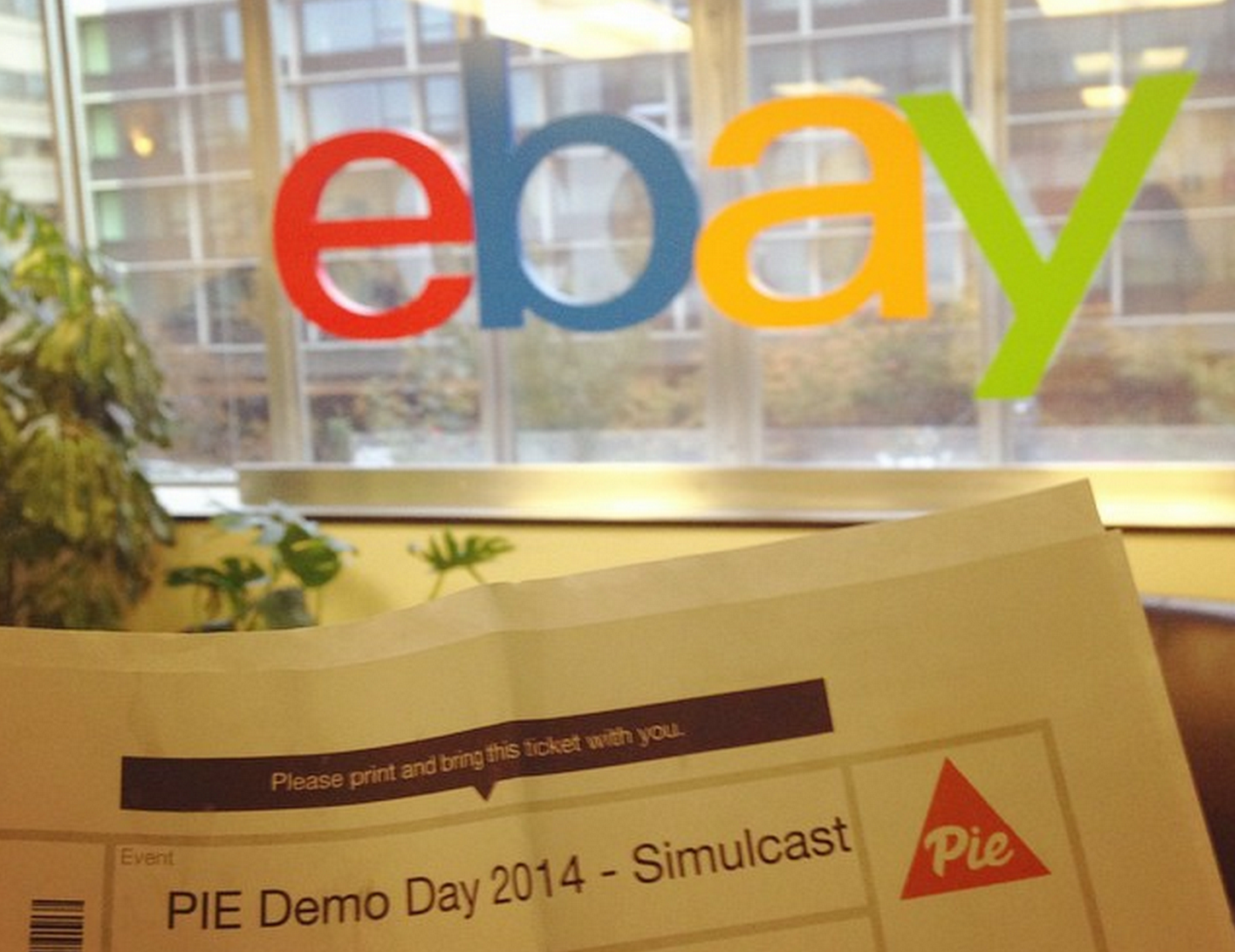
When a colleague of mine first invited me to the Pie Demo Day, I was jubilant with the prospect of tasting a slew of baked goods, from crumbly-crust apple pies to the delicately tart-yet-sweet blueberry pies, preferably with a scoop of vanilla. I soon learned that’s not what the Pie Demo Day is about in the slightest.
The reality, in fact, is much more interesting.
The Portland Incubator Experiment (Pie) helps “ideas become companies.” It’s an incubator that selects a small number of startups to join their ‘class’ each year. Run by Wieden+Kennedy, the program originally began in 2009 and was formally structured in 2011. It was founded by Renny Gleeson and Rick Turoczy, both marketers with unique and quite varied backgrounds, including that in interactive marketing, development, and branding/rebranding (just to name a few).
The incubator grants $20,000 in financing to startups, plus 3 months in the accelerator program and six months of free rent in their downtown Portland location. It’s an attractive package for the early entrepreneur: you get the needed capital for your project, as well as access to alumni, a vibrant startup community, investors and mentors, like the creatives at Wieden+Kennedy.
And that brings us to Pie Demo Day.
A Presentation of Progress: Pie Demo Day
Pie Demo Day is an annual showing of the concepts, startups, and experiments the accelerator has worked on. A Tech Crunch Disrupt of sorts, where you can hear from the founders themselves about their company. Several startups made their presentations, and a neat band maintained whimsical, rockish musical interludes. Here’s the round up of my top 3 favorite presentations:
Supportland
Supportland enables local businesses to network more effectively, specifically with the target of shared customers in mind. Built on the premise that medium and large scale businesses are better positioned to leverage data, which informs partnership decisions, Supportland seeks to level the playing field in favor of the independent, often isolated small businesses. Looking at member purchase data, they locate at the trends of shoppers, then bring this data to business owners, in turn suggesting mutually beneficial cross promotions.
For example, after buying a toy at the local toy store, the clerk would add a free cookie to your account from the baker down the street. While the baker and toy store owner may not have thought they shared customers, Supportland is able to locate that trend, and in return provide the possibility for a heart-warming customer service moment. Imagine it, “Sir, I’ve added a free cookie to your account.” Truly words of bliss.
What I like most about Supportland is the macro approach to a usually highly localized, independent element of the community. By extracting isolated businesses and encouraging them to work together and network, you not only provide the opportunity for shared customers, but also the opportunity for shared knowledge, best practices, and trade specific techniques. This means better products and services, and in effect, a healthier, more responsive community of independent business owners.
Outdoor Project
This may have been the most exciting presentation of the day. The Outdoor Project is focused on getting people outdoors, and in a very creative way. Solving the problem of “it’s a pain to deal with planning,” the Outdoor Project has completely simplified the process of planning an outdoor adventure.
Using a simple, intuitively designed search functionally, you’re able to select the specific type of adventure, the region, and the amenities you’d like to include. Rather than searching across webpages, all the information you need is pulled into a single page, complete with pictures, links to permits, and member reviews.
Part of the beauty of this startup is its reliance on user-generated content and focusing on the visual, emotional impact of imagery. The search is a cascade of images with filters clearly visually identified. Likewise, the pages themselves are rich in content, advice, and practical information a camper would actually use.
Krumpler
Personally, I find myself struggling to keep a list of all my lists. Evernote, Gmail, my Apple calendar… it seems like I’ve been using several different mediums without ever really realizing it. The reality is that it feels easy to keep tracking of things on the fly, ie. ‘I’ll remember to go through my email’ or ‘Send me that Google Invite’ or ‘I’ll just add this to my phone calendar.’ Before you know it, you have several sources of lists.
Krumpler brings all these to-do’s together in one seamless platform. It automatically pulls in the lists from each of your applications and forms a single, neat list for you to follow – no syncing or importing is required. Then, you can assign priority and focus on completing your day from a planner that considers all your schedules. Sweet.
Read the Docs
I know, I know – I said a round up of three. But I couldn’t help but to mention Read the Docs. While I’m not a programmer and have very little experience in the way of project management for programmers, I have heard the woes of poor documentation. That is, when a someone has made adjustments, updates, or changes to a particular piece of code, but doesn’t explain what, how, or why. For programmers, figuring out these changes is a time-consuming, head-to-desk-banging process that ultimately costs money and is frustrating. Ugh!
Read the Docs is a free database for documentation, putting that much needed information at the fingertips of the open source community. It allows users to easily create, host, and browse documentation, saving time and head banging in the process. Read the Docs has also just released ReadtheDocs.com, which puts the same power in the hands of private businesses. This makes it easy to establish a company culture of keeping documentation up-to-date and accessible to all, preventing projects from being stalled or work duplicating.
Pie Demo Day 2015. Maybe Skip the Simulcast.
All in all, I was really intrigued by Pie Demo Day, the speakers, and the hosts. I loved the emphasis on the startup community here in Portland, and I’m excited to see that its continuing to grow. Sure, the simulcast was a bit boring, with <10% of chairs being occupied and nothing but super sugary snacks (says the guy who wanted pie). But for that reason, I’d say make sure you land your tickets to the real thing in time for next year. I’m personally excited to see the progress and new ideas to come out of Pie in 2015. Good work, everyone.




